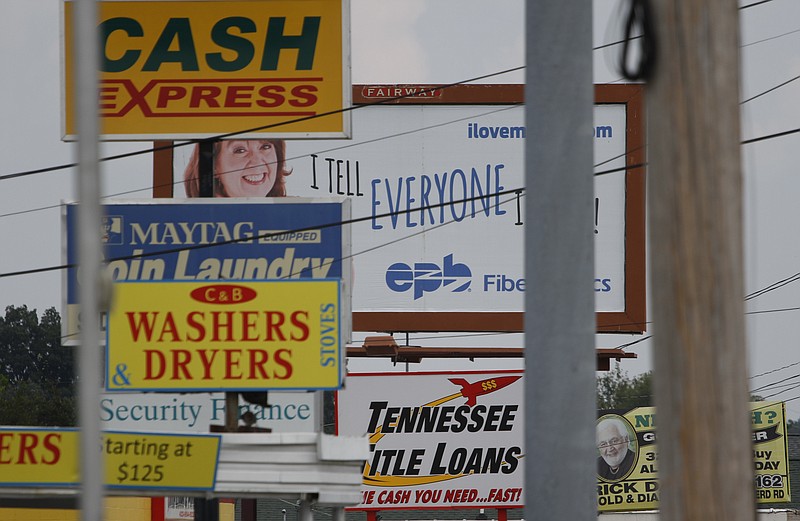If you go
› What: “Predatory Payday Lending: Today’s Debt Slavery”› When: Monday from 7 p.m. to 9 p.m.› Where: Chapel of Covenant College, 14049 Scenic Hwy., Lookout Mountain, Ga., 30750
A pair of panelists who'll take part in a Monday discussion on payday lending raised warnings about the practice.
"We recognize there is a need for short-term loans. But there are socially just ways to do that," said Katie Thompson of the Washington D.C.-based Center for Public Justice.
On Monday, Michael Gerson, a Washington Post columnist who was a top aide and speechwriter for President George W. Bush, will speak on "Predatory Payday Lending: Today's Debt Slavery." He'll give the free talk at Covenant College.
Gerson will be joined by three panelists: Thompson; Stephen Reeves, of the Atlanta-based Cooperative Baptist Fellowship; and Mark Bowers, the curriculum specialist at the Chalmers Center, a Lookout Mountain Christian organization that offers churches a "Faith and Finances" class to help train low-income people in money management skills.
"It's important to the faith community to be a moral voice in this issue," Bowers said. "I'm going to be talking specifically about what the church can do to equip folks with financial education that meets them where they're at, financial education for low-income people."
However, the talk's theme was questioned by Jabo Covert, a spokesman for Cleveland, Tenn.-based Check Into Cash, a payday loan business founded in 1993 by Allan Jones. Earlier this decade, Jones' net worth was estimated at about $500 million by BusinessTN magazine, putting him among Tennessee's Top 20 most wealthy people at the time.
"From the invitation, it looks to be a pretty one-sided, uninformed view of things," Covert said, noting the business is regulated by the state and federal governments. "We're one of the only [businesses] that charge exactly what the government tells us to charge."
Thompson, who helped write a chapter on payday lending in a book titled "Unleashing Opportunity," said Tennessee does have a rate cap on what payday lenders can charge - an annual percentage rate of about 495 percent.
That's so high, she said, that low-income people are never able to get out from under it. Loan pools that offer short-term, low-interest loans are one solution, she said.
Contact staff writer Tim Omarzu at tomarzu@timesfreepress.com or www.facebook.com/MeetsForBusiness or twitter.com/meetforbusiness or 423-757-6651.
